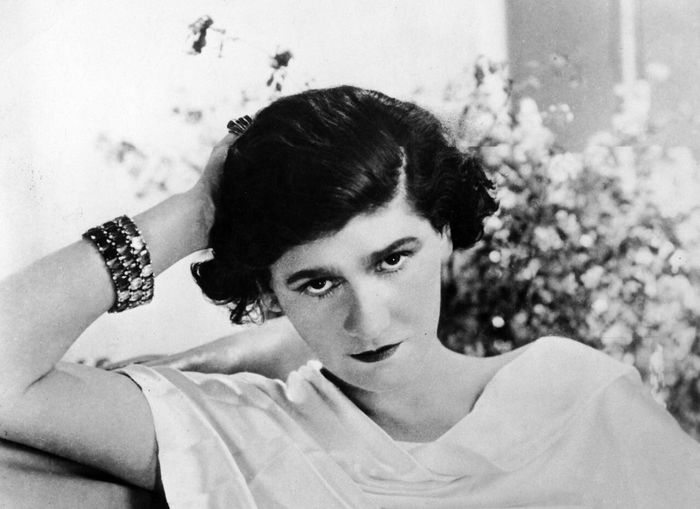The deathly account of the House of Gucci
In anticipation of the upcoming ‘House of Gucci’ film, Fashion Columnist Eva Morris delves into the cut-throat drama of the Gucci family
What do the house of Versace and the house of Gucci have in common? Both houses have a history of murder. In March 1995, Maurizio Gucci, the grandson of the founder of Gucci, was shot dead in Gucci’s Milan office. In July 1997, Gianni Versace, founder of Versace, was shot in the head at his Miami Beach Mansion. After ‘The Assassination of Gianni Versace: American Crime Story’ (2018) detailing the run up to Gianni Versace’s demise was a hit on Netflix, it’s hardly surprising to see ‘House of Gucci’ (coming out in November) similarly going into all the darkest secrets of the Gucci family. Starring Lady Gaga, Adam Driver, Jared Leto and Al Pacino under the direction of Ridley Scott, it promises to be bigger than ever and just as glamorous as Gucci himself would have envisioned.
I write this as the newest ‘House of Gucci’ trailer has just been released, brimming with sumptuous luxury and a sinister aftertaste. The trailer starts with Lady Gaga’s only mildly jarring Italian (or perhaps more Russian) drawl whilst Blondie’s ‘Heart of Glass’ plays ominously in the background. The atmosphere is already one of a mafia movie, but with a ruthless woman playing the lead, and I’m curious as to how the narrative will be spun – and in whose favor. The story behind the film is based on the book ‘The House of Gucci: A Sensational Story of Murder, Madness, Glamour, and Greed’ divulging into the rise and fall of the Gucci family. Being the probing gossip I am, I can’t resist finding out more.
“From a fashion lovers’ perspective I can’t help but look at it through the cultural lens of Gucci in the modern day”
In 1921, Gucci was founded by Guccio Gucci in Florence, with a shop under the name of Azienda Individuale Guccio Gucci selling leather luggage. After the war, Guccio distributed the shares of his company to Aldo, Vasco and Rodolfo, his three sons. However, the Gucci family gossip didn’t start until 1969 with Giorgio Gucci, Aldo’s son. Giorgio launched Gucci Boutique on his own, sparking the individualistic competitiveness that would divide Gucci later on. In 1982 Maurizio Gucci, Rodolfo’s son, inherited his father’s majority stake in the company and succeeded in assuming full control of Gucci from his uncle Aldo. By 1993, due to Maurizio’s lavish spending habits, Gucci was severely in debt and Maurizio ended up selling his shares to Investcorp, marking the end of the Gucci family’s involvement in the business.
However, there was still upset amongst the family. Maurizio had divorced his first wife, Patrizia Reggiani, in 1994 and this is the real relationship the movie picks up on. Maurizio had married Patrizia in 1972 against his father’s wishes as he believed her to be a gold digger seeking only his money. Patrizia did eventually win over the family and the two had children – but all was short lived. In 1985 Maurizio told Patrizia he was going on a business trip. The following day, he sent a friend to tell her the marriage was over and he wasn’t coming back (the 80s equivalent of getting dumped by text). After the divorce was finalised in 1994, Maurizio was shot in the head in 1995 and Patrizia was convicted of contract killing, serving 18 years.
The movie practically makes itself. Purely from a movie watcher’s point of view, I feel an insatiable desire to hear every last detail of the story. However, from a fashion lovers’ perspective I can’t help but look at it through the cultural lens of Gucci in the modern day. Currently, the fashion house is the biggest earner of the brands owned by the Kering Group having brought in €7.44 billion in 2020: the company is clearly still synonymous with luxury and desirability. Since Alessandro Michele came in as Creative Director, the Gucci look is largely different: a new maximalism and ugly-chic that is beautifully gauche. Perhaps this reflects Gucci's uglier past?
And then we can’t forget costume design. Gucci gave the production unlimited access to its fashion archives, a gift too good to be true. Yet Patrizia Gucci wasn’t so happy with the costume choice, telling the press that the film’s interpretation of Paolo Gucci’s style was ‘horrible’ and that they were ‘stealing the identity of a family to make a profit, to increase the income of the Hollywood system.’. But when such a family carves their identity within a fashion house commercialised and sold to the masses, is the public not allowed to interpret the identities they’ve been sold? Or is Hollywood making an insensitive mockery of a family that’s already been through enough? Alas, I must reserve my final judgement for the viewing in November. From the trailer so far, though, I expect there will be a lot to talk about.
 Comment / Cambridge students are too opinionated 21 April 2025
Comment / Cambridge students are too opinionated 21 April 2025 Comment / Does the AI revolution render coursework obsolete?23 April 2025
Comment / Does the AI revolution render coursework obsolete?23 April 2025 Comment / Cambridge’s tourism risks commodifying students18 April 2025
Comment / Cambridge’s tourism risks commodifying students18 April 2025 News / News in brief: campaigning and drinking20 April 2025
News / News in brief: campaigning and drinking20 April 2025 Interviews / Meet the Chaplain who’s working to make Cambridge a university of sanctuary for refugees20 April 2025
Interviews / Meet the Chaplain who’s working to make Cambridge a university of sanctuary for refugees20 April 2025






